What is Acid Reflux, Causes, Natural Remedies, Treatments
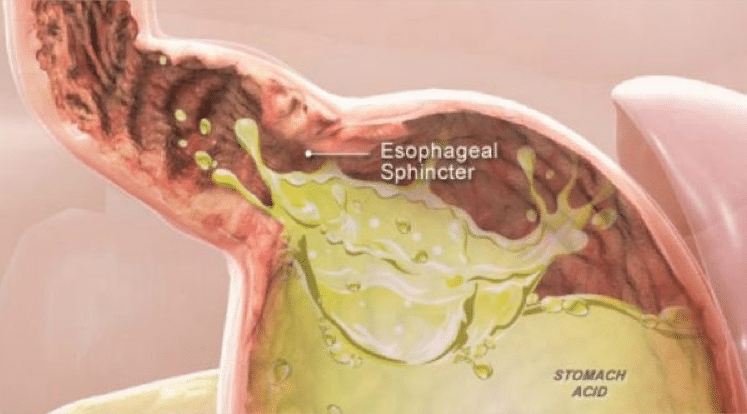
If you’ve ever experienced a burning sensation in your chest or throat after a meal, you may have acid reflux. Acid reflux is a common health issue that affects millions of people worldwide.
In this article, we’ll explore what is acid reflux , its symptoms, causes, and treatments. We’ll also discuss some natural remedies that are used to treat acid reflux as well as some tips on how to avoid it.
What is Acid Reflux?
Acid reflux is a pretty common digestive disorder. Officially known as GERD (Gastroesophageal reflux disease), it occurs when stomach acid flows back up into the esophagus, causing a burning sensation in the chest or throat.
While occasional acid reflux is normal, and not necessarily a major problem, frequent or severe acid reflux can be a cause for concern and may lead to complications if left untreated like chip away the enamel on your teeth and cause a variety of breathing and digestive problems
It is a common digestive disorder that affects people of all ages. It affects millions of people in the USA. Statistics say that more than 60 million Americans experience heartburn once a month, with a huge number experiencing it every day. [1]
The most common symptoms of GERD include regurgitation of sour liquid, chest pain, dry mouth, dysphagia (difficulty swallowing), sore throat, and feeling an invisible lump in the throat.
Up until now, medicine was sure that the problem was caused by excessive production of stomach acid as well by the lack of it.
Due to this, doctors treated the condition with Ranitidine, Gaviscon, Omeprazole and OTC drugs, which are never a long-term solution. These pills can soothe the symptoms, but not stop the condition.
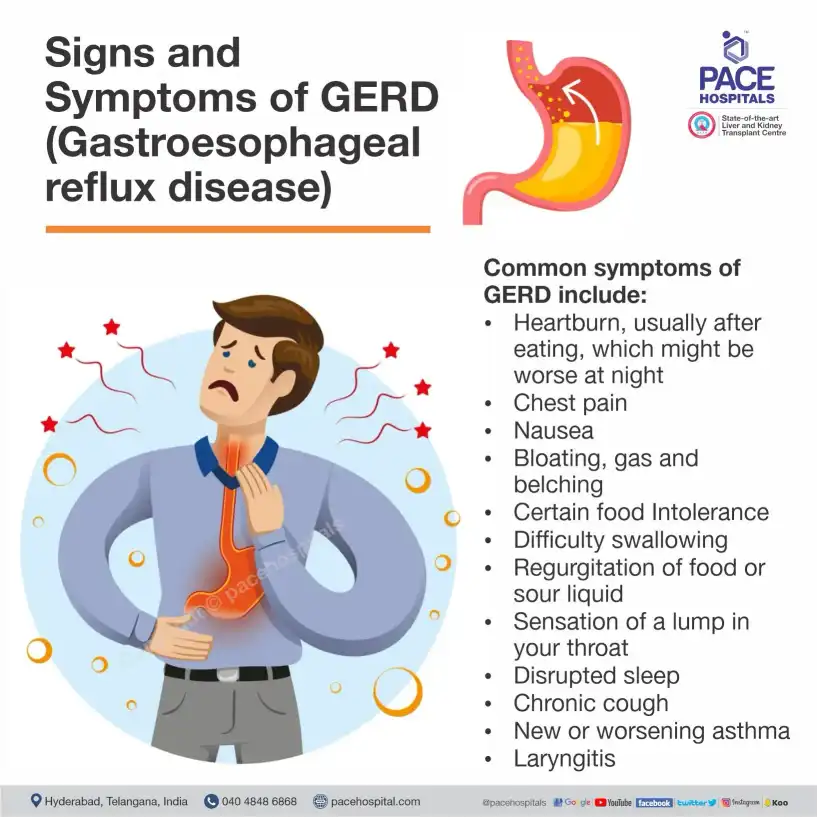
What Causes Acid Reflux?
Acid reflux is a condition that occurs when stomach acid flows back up into the esophagus, causing a burning sensation in the chest and throat. There are several factors that can contribute to the development of acid reflux.
- Weakness of the lower esophageal sphincter (LES): One of the most common causes is a weakness of the lower esophageal sphincter (LES), which is a muscle that separates the stomach from the esophagus. When the LES is weak, it can allow stomach acid to flow back up into the esophagus, causing acid reflux.
- Hiatal Hernia – Another factor that can contribute to acid reflux is a hiatal hernia, which occurs when part of the stomach pushes up through the diaphragm and into the chest. This can put pressure on the LES, causing it to weaken and allowing stomach acid to flow back up into the esophagus.
- Obesity, pregnancy, smoking: Obesity, pregnancy, and smoking can also increase the risk of developing acid reflux.
- Eating Large Meals: Eating large meals or/and lying down after a meal can also contribute to the condition.
- Certain Foods: Certain foods and drinks, such as citrus, tomato, chocolate, caffeine, and alcohol, can also trigger acid reflux in some people.
- Hypochlorhydria – Finally, hypochlorhydria, which is a condition where there is a lack of stomach acid, can also contribute to acid reflux. When there is not enough stomach acid, the LES may not function properly, allowing stomach contents to flow back up into the esophagus.
Complications of Untreated Acid Reflux
Untreated acid reflux can lead to a variety of complications, some of which can be quite serious.
- Esophagitis – One of the most common complications is esophagitis, which is inflammation of the esophagus. This can cause pain, difficulty swallowing, and even bleeding in severe cases. If left untreated, esophagitis can lead to more serious problems such as ulcers, scarring, and difficulty swallowing.
- Barrett’s esophagus – Another potential complication of untreated acid reflux is Barrett’s esophagus. This is a condition in which the lining of the esophagus undergoes abnormal changes, which can increase the risk of developing esophageal cancer. While not everyone with acid reflux will develop Barrett’s esophagus, it is important to be aware of the risk and to seek treatment if you experience persistent symptoms.
- Esophageal strictures – Esophageal strictures are another potential complication of untreated acid reflux. This occurs when the esophagus narrows due to scarring, making it difficult to swallow food or even liquids. In severe cases, a person may need to undergo surgery to correct the problem.
- Asthma or pneumonia – Finally, untreated acid reflux can lead to respiratory problems such as asthma or pneumonia. This occurs when stomach acid is regurgitated into the lungs, causing irritation and inflammation. Over time, this can lead to serious respiratory problems and can even increase the risk of developing lung cancer.
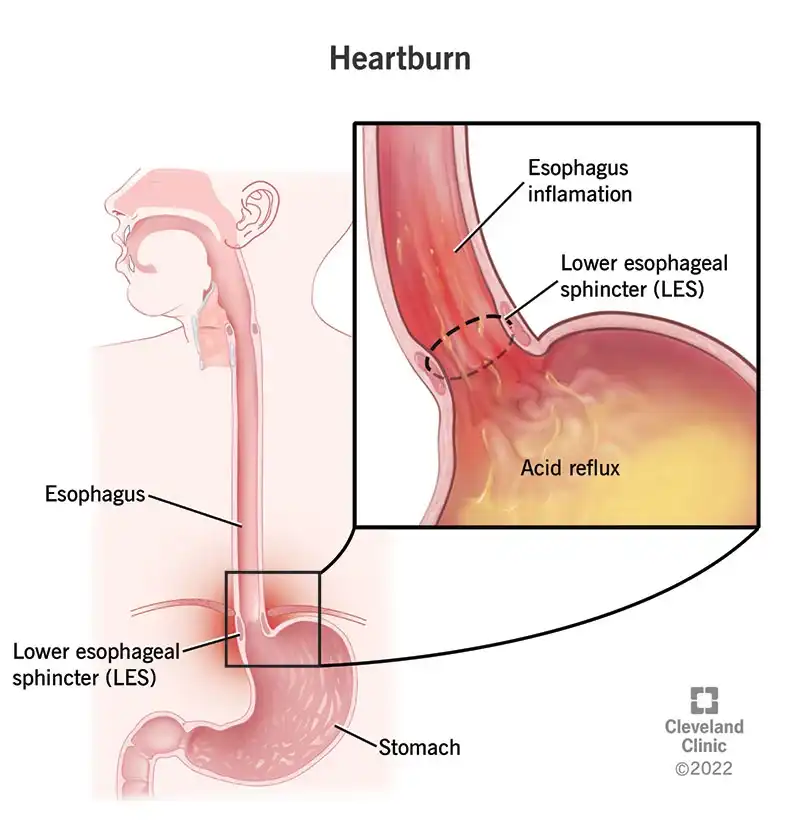
How Acid Reflux is Diagnosed?
If you are experiencing symptoms of acid reflux, such as heartburn, regurgitation, or a sour taste in your mouth, it is important to see a doctor for an accurate diagnosis.
To diagnose acid reflux, your doctor will typically begin by performing a physical exam and taking a medical history. They may ask you about your symptoms, when they occur, and what triggers them.
In addition to a physical exam and medical history, your doctor may order diagnostic tests to confirm a diagnosis of acid reflux. One common test is an endoscopy, which involves inserting a thin, flexible tube with a camera into the esophagus to examine the lining.
This procedure can help your doctor identify any inflammation or damage to the esophagus that may be caused by acid reflux.
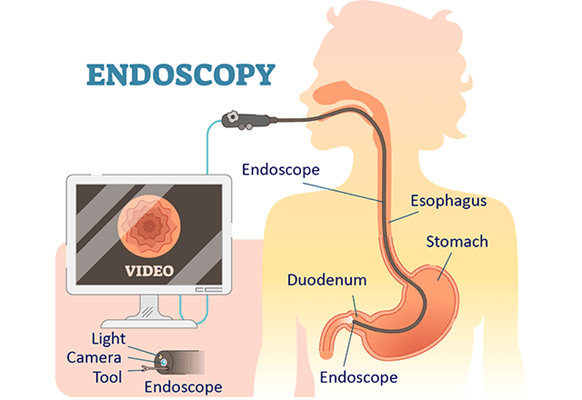
Another test that may be used to diagnose acid reflux is pH monitoring. This test involves placing a small device in the esophagus that measures the acidity levels over a 24-hour period. This can help your doctor determine if acid reflux is the cause of your symptoms.
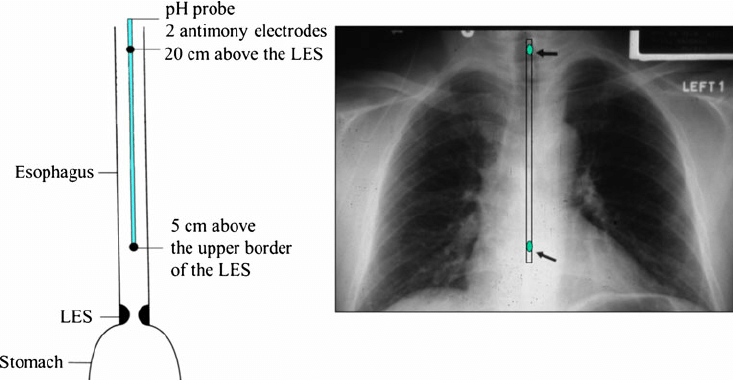
A barium swallow is another diagnostic test that may be used to diagnose acid reflux. During this test, you will drink a liquid containing barium, which shows up on X-rays. This can help your doctor identify any structural abnormalities in the esophagus that may be contributing to your symptoms.
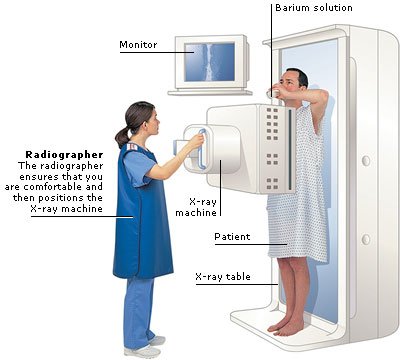
Overall, there are several diagnostic tests that can be used to diagnose acid reflux, and your doctor will determine which tests are appropriate based on your individual symptoms and medical history.
What are Acid Reflux Treatments?
Acid reflux can be an uncomfortable and disruptive condition, but thankfully there are a variety of treatments available that can help manage symptoms and improve quality of life. The type of treatment recommended will depend on the severity and frequency of symptoms, as well as other factors such as overall health and medical history.
For many people with mild to moderate acid reflux, lifestyle modifications can be an effective first line of defense. This might include avoiding trigger foods and drinks, losing weight if necessary, and elevating the head of the bed to reduce symptoms at night.
By making these simple changes, many people are able to reduce their symptoms and enjoy a better quality of life.
Over-the-counter medications such as antacids and H2 blockers are another common treatment option for acid reflux.
Antacids work by neutralizing stomach acid, while H2 blockers work by reducing the amount of acid produced by the stomach.
While these medications can be effective for managing mild to moderate symptoms, they may not be sufficient for more severe cases.
For more severe cases of acid reflux, prescription medications such as proton pump inhibitors (PPIs) may be recommended. PPIs work by blocking the production of stomach acid, which can be especially helpful for people with chronic acid reflux.
However, these medications may not be appropriate for everyone, as they can have side effects and may interact with other medications.
In rare cases where other treatments have failed, surgery may be recommended. One common surgery for acid reflux is called a fundoplication, which involves wrapping the upper part of the stomach around the lower esophageal sphincter to prevent acid from flowing back into the esophagus.
While surgery can be effective for some people, it is typically reserved for those with severe symptoms that cannot be managed with other treatments.

Natural Remedies for Acid Reflux
In addition to medical treatments, there are several natural remedies that can help manage acid reflux.
- Ginger Tea/Gum – One popular remedy is ginger, which can be consumed in tea form or chewed as gum. Ginger has natural anti-inflammatory properties that can help soothe the esophagus and reduce acid reflux symptoms.
- Licorice Root & Slippery Elm – Licorice root and slippery elm are also helpful for soothing the esophagus and reducing inflammation.
- Eat smaller meals – Another natural remedy for acid reflux is to eat smaller, more frequent meals instead of large meals. Eating large meals can put pressure on the lower esophageal sphincter, causing acid to reflux back into the esophagus. By eating smaller meals, you can reduce this pressure and decrease the likelihood of acid reflux.
- Avoid “trigger” foods – It’s also important to avoid trigger foods that can worsen acid reflux symptoms. Citrus fruits, tomatoes, chocolate, caffeine, and alcohol are all common trigger foods. By avoiding these foods, you can reduce the frequency and severity of your acid reflux symptoms.
- Elevate your head while sleeping – Elevating the head of your bed can also help reduce acid reflux symptoms at night. By elevating your upper body, you can prevent stomach acid from flowing back into your esophagus while you sleep.
- Meditation / Yoga – Stress-reducing techniques such as meditation or yoga can also be helpful for managing acid reflux. Stress can increase the production of stomach acid, so reducing stress levels can help reduce acid reflux symptoms.
- Chamomile Tea – Chamomile tea is another natural remedy for acid reflux that can help soothe the stomach and promote better sleep. Chamomile is known for its relaxing properties, thus, by reducing stress and preventing anxiety, the tea can reduce inflammation in the stomach and prevent future episodes of acid reflux.
- Apple Cider Vinegar – Apple cider vinegar (ACV) is also known to balance the production of acid in your stomach and soothe acid reflux problems. Simply add a tablespoon of ACV in a glass of water and drink the mix – it can help you right away.
- Astaxanthin – A daily dose of 40 mg of astaxanthin can also be effective in soothing the symptoms of acid reflux.
- Probiotics – Regular intake of probiotics and a light diet can keep your stomach acid production balanced and prevent GERD.
- Magnesium – Magnesium supplements also work well, as the mineral has the ability to relax muscles and support proper digestion. Taking 400 mg of magnesium every day can prevent acid reflux and other digestive problems.
- Aloe Vera – Drinking a shot glass of Aloe Vera juice can also help regulate your acid levels and keep acid reflux away.
- Folic Acid – Folic acid and all the vitamins from the B group can also treat the symptoms of GERD. Eating foods rich in folic acid or taking multivitamin supplements can help treat the problem.
Helpful Tips to Avoid Acid Reflux
If you’re someone who suffers from acid reflux, you know how painful and uncomfortable it can be. The good news is that there are steps you can take to avoid having acid reflux in the first place. While some people are more prone to it than others, making a few lifestyle changes can help reduce your risk.
Firstly, it’s important to maintain a healthy weight. Carrying excess weight puts pressure on your stomach, which can cause acid to leak into your esophagus. Eating a healthy diet and getting regular exercise can help you maintain a healthy weight and reduce your risk of acid reflux.
Eating smaller, more frequent meals can also help reduce your risk of acid reflux. Large meals can cause your stomach to produce more acid, which can lead to symptoms. Eating smaller meals more often can help keep your stomach from producing too much acid.
Avoiding trigger foods and drinks is also crucial. Some common trigger foods include spicy or fatty foods, citrus, tomato-based products, chocolate, caffeine, and alcohol. Keeping a food diary can help you identify which foods and drinks are triggering your symptoms.
Another important tip is to not lie down immediately after eating. This can cause stomach acid to flow back up into your esophagus. Try to wait at least two to three hours after eating before lying down.
Elevating the head of your bed can also help reduce your risk of acid reflux. You can do this by placing blocks or books under the head of your bed, or by using a wedge pillow. This can help prevent stomach acid from flowing back into your esophagus while you sleep.
Finally, if you’re a smoker, quitting smoking can help reduce your risk of acid reflux. Smoking can weaken the muscle that controls the opening between your stomach and esophagus, which can allow stomach acid to flow back into your esophagus.
By following these tips, you can help reduce your risk of developing acid reflux. Remember to also talk to your doctor if you’re experiencing frequent symptoms, as they can help you develop a personalized plan to manage your acid reflux.
Bottom Line
In conclusion, acid reflux is a common condition that can be caused by various factors. While occasional acid reflux is normal, chronic acid reflux can lead to serious complications if left untreated.
The good news is that there are several treatment options available, including lifestyle changes, over-the-counter medications, prescription medications, and surgery.
Additionally, natural remedies such as ginger tea, probiotics, and chamomile tea can also provide relief from acid reflux symptoms.
By making simple lifestyle changes and taking steps to manage the condition, you can significantly reduce your risk of developing acid reflux.
So if you are experiencing symptoms of acid reflux, don’t hesitate to seek medical attention and take the necessary steps to manage the condition.
Read Also
